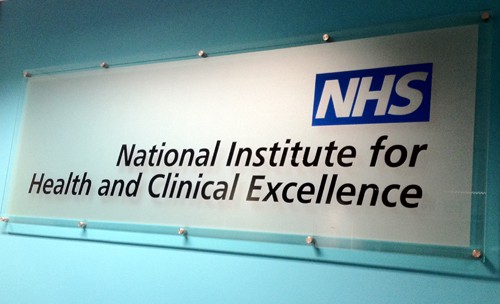
NICE has lost no time in firing a broadside across the bows of Gilead/Kite after the EU approval of its CAR-T Yescarta, rejecting use of the cancer immunotherapy by the NHS in draft guidance.
The UK cost-effectiveness watchdog has yet to deliver a verdict on Novartis’ CAR-T Kymriah, also approved this week, but expect a missive soon as the first committee meeting on the drug was held a few days ago.
The appraisal document for Yescarta (axicabtagene ciloleucel ) notes that the therapy “is not recommended, within its anticipated marketing authorisation, for treating relapsed or refractory diffuse large B-cell lymphoma or primary mediastinal large B-cell lymphoma in adults after 2 or more systemic therapies.” It’s been estimated there are around 4,800 people are diagnosed with DLBCL or PMLBL each year in the UK.
Neither Novartis nor Gilead have disclosed their UK or EU prices for the drugs, though they are expected to have list prices around the €300,000 (£272,000) mark, as a starting point for pricing and reimbursement negotiations.
While Yescarta has been shown to be clinically effective, NICE says that there are “no direct data comparing axicabtagene ciloleucel with salvage chemotherapy”, which is viewed as the best supportive care currently available to these patients. “This means that the exact size of the benefit of axicabtagene ciloleucel compared with salvage chemotherapy is unknown.” The appraisal committee was also concerned about the side effects of the therapy.
While it is a life-extending treatment, Yescarta doesn’t meet NICE’s criteria for cost-effectiveness for NHS use or indeed the Cancer Drugs Fund (CDF), coming in at above £50,000 per year of quality adjusted life (QALY) gained, the upper limit of the specially extended range of cost effectives for cancer treatments.

NICE’s Meindert Boysen
“Although promising, there is still much more we need to know about CAR-T, and unfortunately, in this case, we are not able to recommend axicabtagene ciloleucel for use in the NHS in England at the cost per patient set by Kite Pharma,” said Meindert Boysen, director of the centre for health technology evaluation at NICE.
This is an opening salvo from NICE, and Gilead/Kite have the opportunity to provide additional data to support Yescarta – in fact the committee suggests that a subpopulation of the ORCHARRD study or results from the Haematological Malignancy Research Network could be used to provide plausible estimates of survival for people having salvage chemotherapy for comparison with Yescarta. And of course, there’s always the option to reduce the price of the therapy.
Commenting on the decision, Professor Raj Chopra, head of cancer therapeutics at The Institute of Cancer Research in London, said:
“It’s disappointing that patients with non-Hodgkin lymphoma who have exhausted all other treatment options will not be able to access CAR T cell therapy – a brand new type of treatment for blood cancers. CAR T cell therapy uses a patient’s own genetically modified immune cells to target their cancer. The technique is complex and expensive, but it is also a major advance in cancer treatment that has cured some patients who would otherwise have died.”
“If we’re going to see CAR T therapy widely available on the NHS, we need to find ways to reduce the costs. I hope NICE and the manufacturer will be able to work together both to bring the costs of treatment down and continue to build a stronger evidence base for it, so it can be made available to NHS patients as quickly as possible.”
Hilary Hutton-Squire, general manager, Gilead Sciences UK & Ireland took a measured tone in response to the early knock back from NICE – and signalled her belief that a deal could be reached.
“Yescarta is a new generation of innovative cell therapy that is bringing a new option to patients who, in many cases, have run out of treatment options and literally have months to live.
“Our priority is to make axicabtagene ciloleucel available to patients in the UK as soon as possible and as such we believe we will soon be able to reach an agreement. Cell therapy is a new and advanced technology and, as NICE have identified, there is little available data about the salvage treatment of patients with aggressive forms of non-Hodgkin lymphoma (NHL) in England. We’re therefore in ongoing discussions with NICE to identify appropriate treatment comparators which can clarify how cell therapy may be made available to patients in the UK.”
NICE is a little further behind in its appraisal of Novartis’s CAR-T rival – it held its first appraisal committee meeting last Wednesday, while the first Yescarta appraisal meeting was held on 31 July.
Both Novartis and Gilead will hope to avoid drawn-out negotiations with NICE and NHS England to gain access to the market in England. NHS England chief executive Simon Stevens acknowledged at the UK industry association ABPI conference earlier this year that the CAR-T therapies were “ground-breaking” with the potential to transform the treatment but called on them to set “fair and affordable prices so treatments can be made available to all who need them”.




